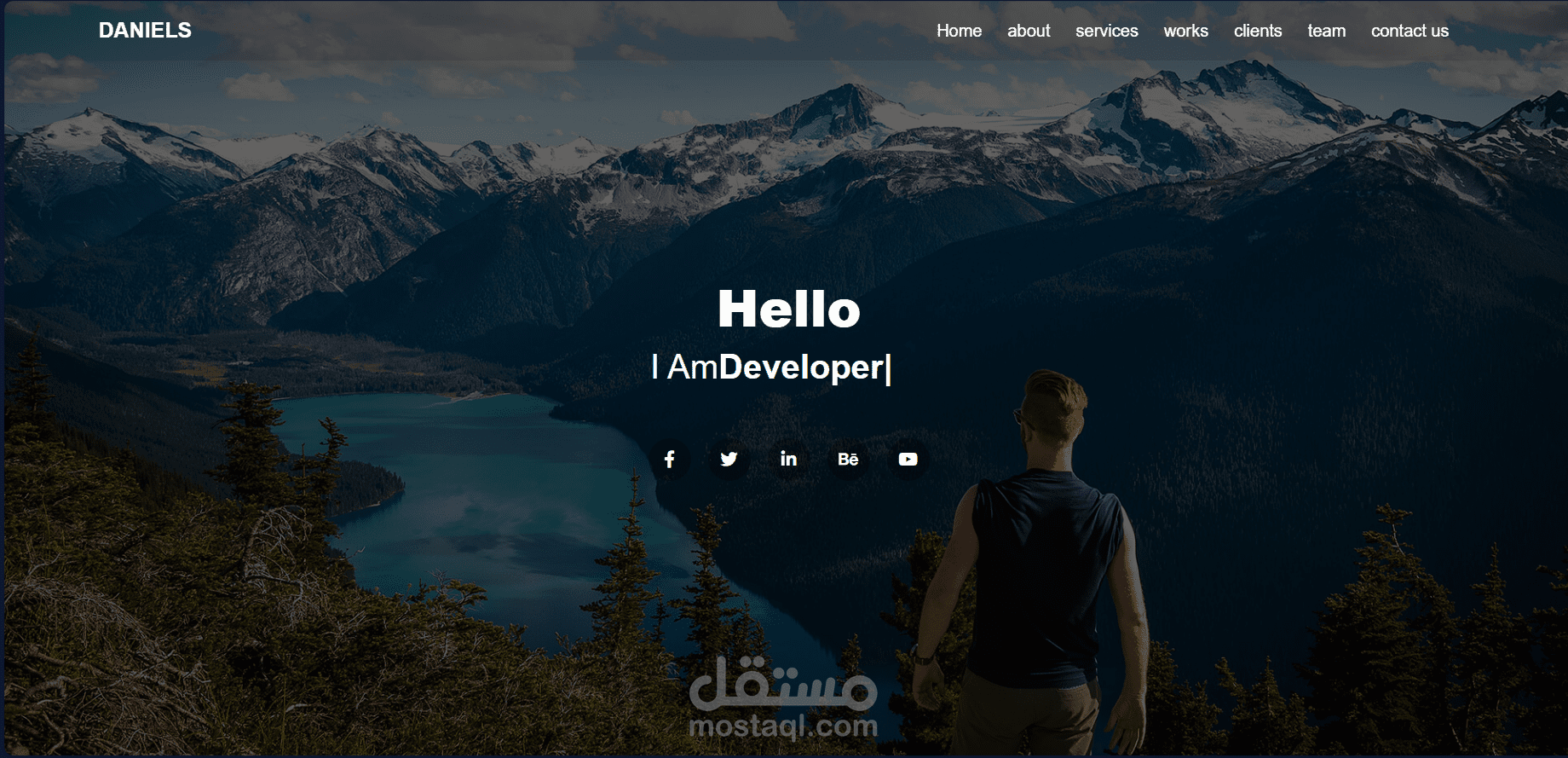https://github.com/Omarmora010/portoflio
تفاصيل العمل
A portfolio page is a personal or professional website section that showcases an individual's or a company's work, projects, skills, and achievements. It serves as a visual and informative representation of one's capabilities, providing visitors with insights into the individual's expertise or the company's offerings. Here's an overview of the key components typically found on a portfolio page:
Introduction:
A brief and engaging introduction, welcoming visitors and providing a quick overview of the purpose of the portfolio.
Profile Picture/Logo:
A professional photo or logo that adds a personal touch to the portfolio.
About Me/Us Section:
A section providing more detailed information about the individual or company, including background, skills, values, and mission.
Work/Project Showcase:
An organized display of completed projects or notable works.
Each project includes a title, description, images, and possibly links to live projects or additional details.
Categories or tags to help visitors navigate through different types of projects.
Case Studies:
In-depth case studies for selected projects, detailing the challenges, solutions, and outcomes.
Showcase the process and problem-solving skills applied during the project.
Skills and Expertise:
A section highlighting the individual's or company's key skills, technologies, and areas of expertise.
Visual elements such as skill bars or icons can be used for a quick overview.
Testimonials:
Quotes or testimonials from clients, colleagues, or collaborators to build credibility.
Include the names and affiliations of those providing testimonials.
Resume/CV:
An option to download or view a detailed resume or curriculum vitae.
Information about education, work experience, and relevant certifications.
Contact Information:
Clear and easily accessible contact details, including email address, phone number, and links to social media profiles.
Call-to-Action (CTA):
Encourage visitors to get in touch, whether it's for collaboration, inquiries, or hiring.
CTA buttons leading to contact forms or specific pages.
Blog/Articles (Optional):
If applicable, a section for blog posts or articles related to the individual's or company's field of expertise.
Demonstrates knowledge, thought leadership, and ongoing learning.
Responsive Design:
Ensures the portfolio is accessible and visually appealing across various devices, including desktops, tablets, and mobile phones.
Navigation:
An intuitive menu or navigation bar allowing visitors to easily jump between different sections of the portfolio.
Visual Consistency:
Consistent use of color schemes, fonts, and design elements for a cohesive and professional appearance.
A well-crafted portfolio page effectively showcases skills, experience, and achievements, making it a powerful tool for personal branding or business promotion. Regular updates to reflect current work and skills contribute to maintaining relevance and engagement.

